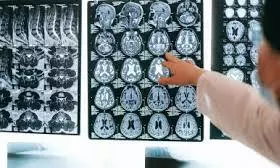
IIT Madras unveils world’s most detailed images of fetal brain
text_fieldsResearchers at IIT Madras have created the most detailed three-dimensional, high-resolution images of the human fetal brain to date.
This global first was accomplished using advanced brain mapping technology developed at the institute's Sudha Gopalakrishnan Brain Centre.
The project, which digitally captured 5,132 sections of the fetal brain, provides unprecedented insights into its development during the second trimester. The resulting cell-resolution atlas, named "Dharani", offers a valuable tool for early diagnosis and treatment of developmental disorders such as autism and learning disabilities.
The Dharani database, now the most detailed publicly available digital dataset of the human fetal brain, is accessible to researchers and clinicians worldwide. According to Professor Mohanasankar Sivaprakasam, Head of the Sudha Gopalakrishnan Brain Centre, this dataset advances current knowledge by a factor of 20, making it a significant global resource for neuroscience research.
This ambitious project was achieved at just one-tenth the cost of similar initiatives in Western countries. Researchers from India, the United States, Australia, Romania, and South Africa collaborated alongside Mediscan Systems and Saveetha Medical College Hospital in Chennai.
“This study lays the foundation for scientific discoveries, enabling quantification of neurodevelopmental disorders and progress in fetal medicine,” Professor Sivaprakasam said.
India, accounting for nearly one-fifth of the world’s annual births, faces a pressing need to understand the progression of brain development from the fetal stage through to adulthood. The Dharani project marks a significant step in addressing this need and has the potential to improve the diagnosis and management of developmental disorders in children across the nation.























